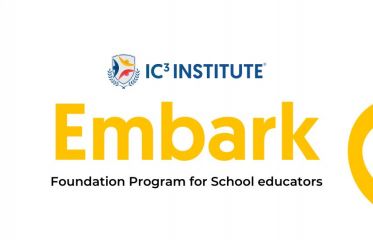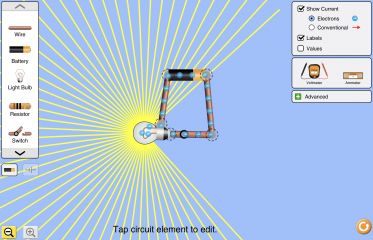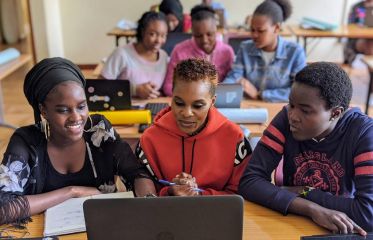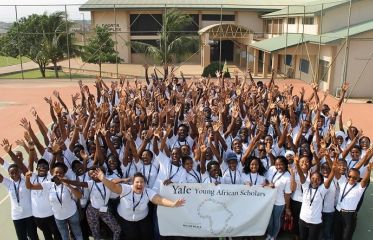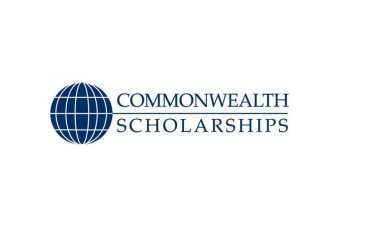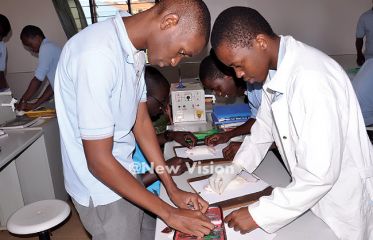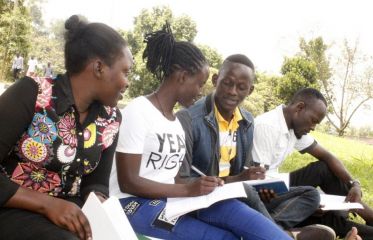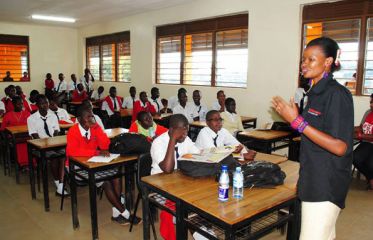Breaking News
- Flexible Remote Work Opportunity for University Students: Earn $100–$250 Per Month ...Read More
- Ministry of Education and Sports Azerbaijan Government Scholarships For 2025-2026 Academic Year ...Read More
- Government Sponsorship Undergraduate Admission Lists 2025-26 for Makerere University ...Read More
- Ministry of Education And Sports: Egyptian Government Scholarships 2025-2026 Academic Year ...Read More
- Ground Breaker Full Scholarship for girls to study Software Engineering 2025 July Intake ...Read More
- Tony Elumelu Foundation Entrepreneurship Programme (TEEP) 2025 for young African Entrepreneurs ...Read More
- DESIGNING FUTURES 2050 International Design Competition 2025 (€15,000 prize) ...Read More
- Ground Breaker Full time Scholarship for girls to study Software Engineering 2025 Intake ...Read More
- Ministry of Education And Sports Algerian Vocational Training Scholarships for 2024-2025 AY ...Read More
- Ministry of Education and Sports Advert for the Algerian Government Scholarships for 2024-2025 ...Read More
Lecturer
Lecturers instruct students in a wide variety of academic and vocational subjects beyond the high school level. They also conduct research and publish scholarly papers and books.
Add to FavouritesAlso known as: Professor, Adjunct professor, Postsecondary Teacher, Graduate teaching assistants
Duties
Many lecturers find their jobs rewarding because they are surrounded by others who enjoy their subject. The opportunity to share their expertise with others also is appealing to many and they typically do the following:
1. Teach courses in their subject area e.g career-related subjects, such as law, nursing
2. Work with students who are studying for a degree or a certificate or certification or are taking classes to improve their knowledge or career skills
3. Develop an instructional plan (known as a course outline or syllabus) for the course(s) they teach and ensure that it meets college and department standards
4. Plan lessons and assignments
5. Work with colleagues to develop or modify the curriculum for a degree or certificate program involving a series of courses
6. Assess students' progress by grading papers, tests, and other work
7. Advise students about which classes to take and how to achieve their goals
8. Stay informed about changes and innovations in their field
9. Conduct research and experiments to advance knowledge in their field
10. Supervise graduate students who are working toward doctoral degrees
11. Publish original research and analysis in books and academic journals
12. Serve on academic and administrative committees that review and recommend policies, make budget decisions, or advise on hiring and promotions within their department
Important Qualities
Communication skills. Postsecondary teachers need to write papers, give lectures, and serve on committees. To do so effectively, they need good communication skills.
Critical-thinking skills. To challenge established theories and beliefs, conduct original research, and design experiments, postsecondary teachers need good critical-thinking skills.
Resourcefulness. Postsecondary teachers need to be able to present information in a way that students will understand. They need to adapt to the different learning styles of their students and teach students who have little or no experience with the subject.
Writing skills. Most professors publish original research and analysis. Consequently, they need to be skilled writers.
Key Knowledge Areas
Education and Training — Knowledge of principles and methods for curriculum and training design, teaching and instruction for individuals and groups, and the measurement of training effects.
Customer and Personal Service — Knowledge of principles and processes for providing customer and personal services. This includes customer needs assessment, meeting quality standards for services, and evaluation of customer satisfaction.
English Language — Knowledge of the structure and content of the English language including the meaning and spelling of words, rules of composition, and grammar.
Administration and Management — Knowledge of business and management principles involved in strategic planning, resource allocation, human resources modeling, leadership technique, production methods, and coordination of people and resources.
Public Safety and Security — Knowledge of relevant equipment, policies, procedures, and strategies to promote effective local, state, or national security operations for the protection of people, data, property, and institutions.
Psychology — Knowledge of human behavior and performance; individual differences in ability, personality, and interests; learning and motivation; psychological research methods; and the assessment and treatment of behavioral and affective disorders.

























